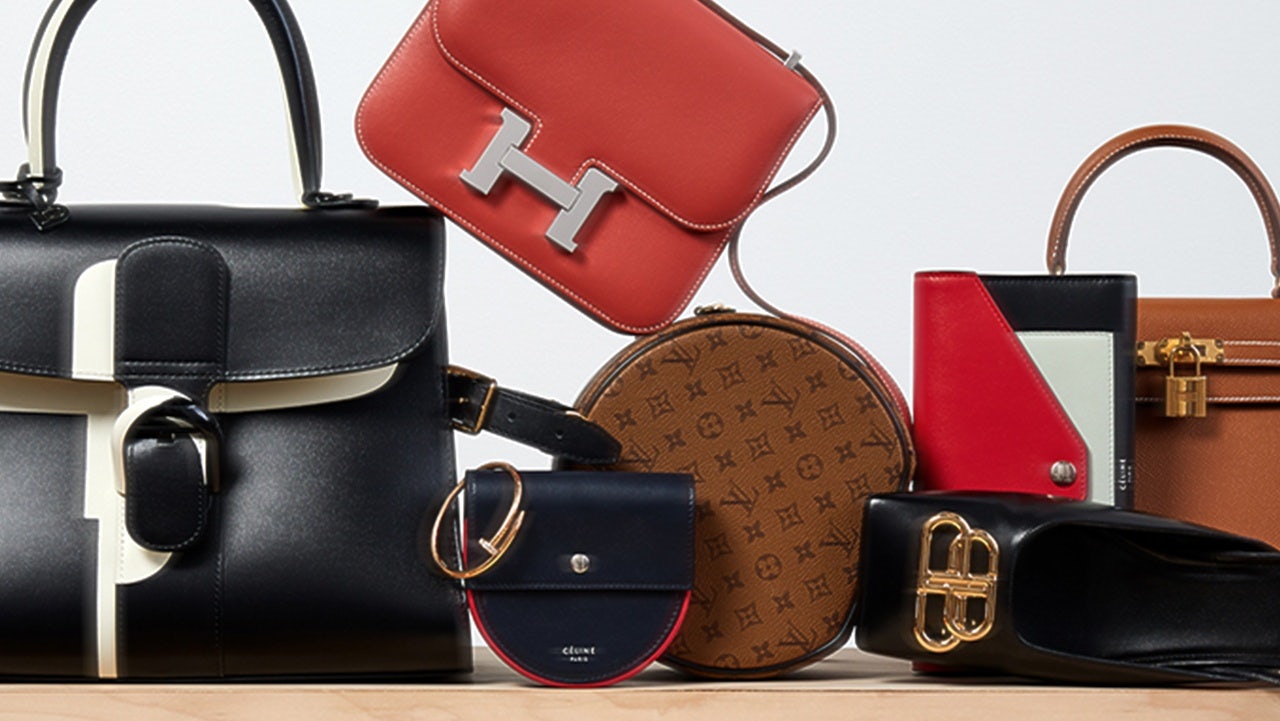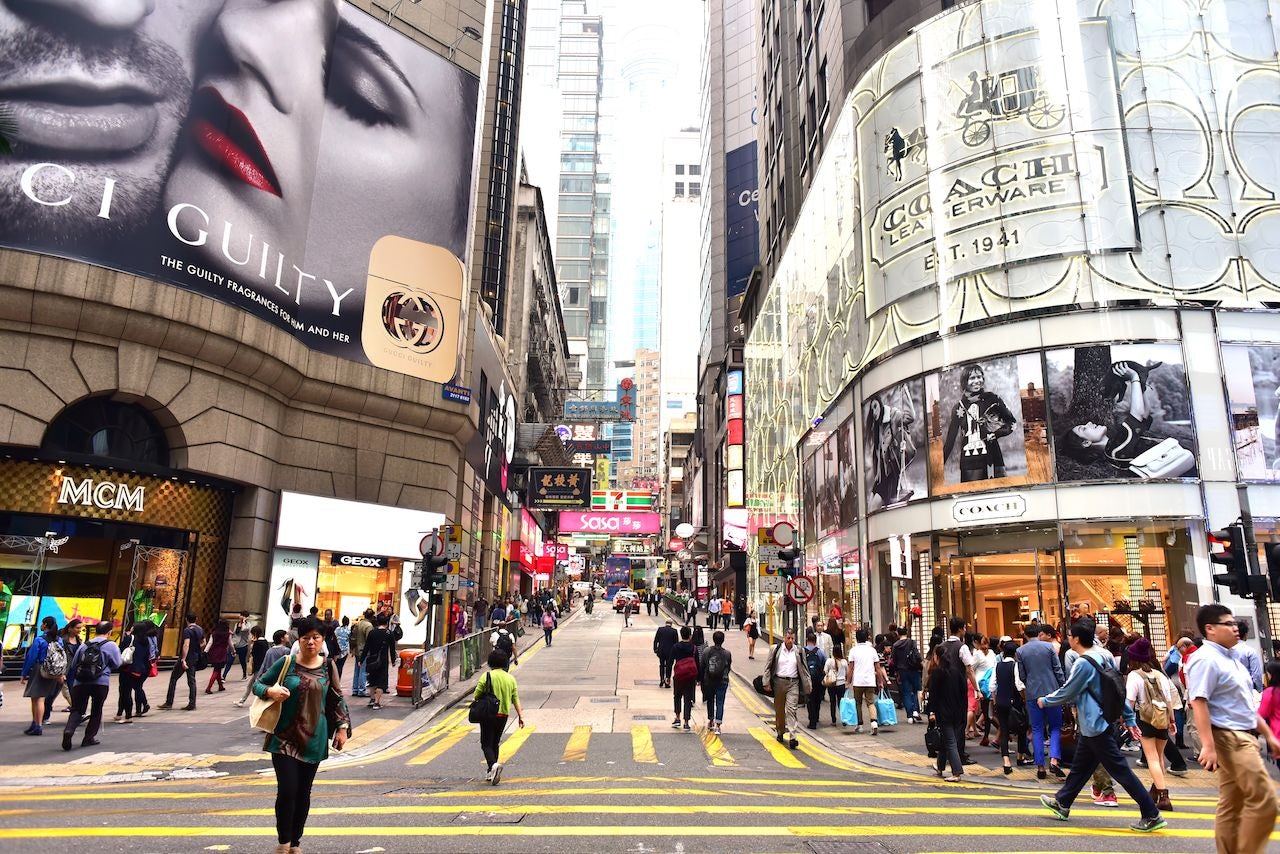As Hong Kong announces its first recession in a decade, luxury brands operating in the region are growing increasingly concerned for a sector that once represented a significant portion of global luxury profits. Given this, some companies are starting to focus on the rise of second-hand shoppers as an opportunity to target an entirely new type of Hong Kong luxury consumer.
On November 21, McKinsey & Company and The Business of Fashion released their fourth annual State of Fashion Report — and the future looks rather bleak for luxury brands. The report takes an in-depth look at the global luxury sector that has been shaken by geopolitical unrest and ideological shifts. Using a combination of statistical analysis and commentary from experts, the report revealed that revenue expectations for the fashion industry will slow further in 2020 — down three or four percent — which is slightly below the predicted growth for 2019.
The report, however, does state that the most optimistic region is Asia, although even there only 14 percent of executives interviewed expect an improvement in conditions. So how can brands combat the effects of the luxury industry’s projected global slowdown?
For Burberry, the company stated during their earnings release last month that is will try to address declining sales in Hong Kong by targeting local consumers over mainland Chinese tourists, which have greatly decreased with the continuing protests. It remains to be seen as to what form this will actually take, but it’s clear that this is an area where luxury brands are scrambling for answers and attempting to implement new solutions to counteract the negative effects of the region’s unrest.
Yet, there is one solution that seems to be gaining traction — sustainable luxury. While it’s been a hard sell in mainland China, where consumers are only just starting to wake up to the negative environmental impacts of such a fast fashion industry, in Hong Kong evidence suggests that luxury shoppers entering a recession are looking for new ways to both make and spend money, as well as an increased desire to care for the planet in the process.
Hence, the boom of the second-hand luxury market.
WP Diamonds is a specialist in online diamond and jewelry purchasing. Founded in 2012, WP Diamonds launched a branch in Hong Kong in 2018. With headquarters in the United States and the United Kingdom, their newest outpost in Hong Kong arrived at a time when the second-hand luxury market was just showing promising signs of growth. For example, style savvy Asian consumers can now recycle covetable pieces by iconic brands such as Tiffany, Cartier, and Omega, and make some money in the process.
In November 2018, the company also launched Gemma by WP Diamonds, an online e-commerce store that allows consumers to shop for jewelry via their digital platform, to cater to a growing demand for sustainable luxury. Andrew Brown, CEO of WP Diamonds told Jing Daily, “The recession will not lessen the demand for luxury in Hong Kong, however, it will give rise to savvy consumers. During a recession, price-conscious buyers will naturally lean towards the pre-owned market for luxury purchases. As such we expect to see a distinct and continued rise in demand for second-hand luxury.”
As Brown suggests, it is not just diamonds and jewelry that luxury shoppers are looking to source second-hand. Enter Vestiaire Collective, the leading global platform for luxury second-hand fashion, which has seen a distinct rise in interest in pre-loved goods in the Hong Kong region. The Vestiaire Collective boasts hundreds of classic luxury brands like Chanel, Dolce & Gabbana, and Louis Vuitton, as well as fashionable streetwear brands Supreme and Off-White.
Launched in 2009, Vestiaire Collective encourages consumers to join the circular economy. As the sustainable alternative to throwaway fashion, the Vestiaire Collective has over nine million members worldwide with offices in Paris, London, New York, Milan, Berlin, and Hong Kong. Its community of sellers submits over 40,000 new items every week, which enables buyers to search among some of the most coveted fashion pieces, while also still shopping sustainably.
President and Co-Founder Fanny Moizant told Jing Daily that the Hong Kong recession is likely to continue to boost sales for the second-hand luxury platform, “Vestiaire Collective was actually founded during global recession in 2009, by offering customers affordable luxury and the opportunity to transform closets into an extra source of income. Our robust business model as an online resale platform disrupted the industry and has proven to thrive in tough economic times. We’ve seen an uplift in order and deposit volumes between the first and second half of 2019 (as of Oct), as well as strong growth in the number of buyers and sellers despite entering a period of uncertainty in Hong Kong.”
For shoppers who want big-name brands, pre-loved luxury platforms like WP Diamonds and Vestiaire Collective are just two possibilities that might provide them with the products — and the price — their looking for during difficult economic times. For brands, however, innovation is key to reach this once prosperous market, where consumers in Hong Kong are looking both for good luxury deals and a sustainable way to shop.

